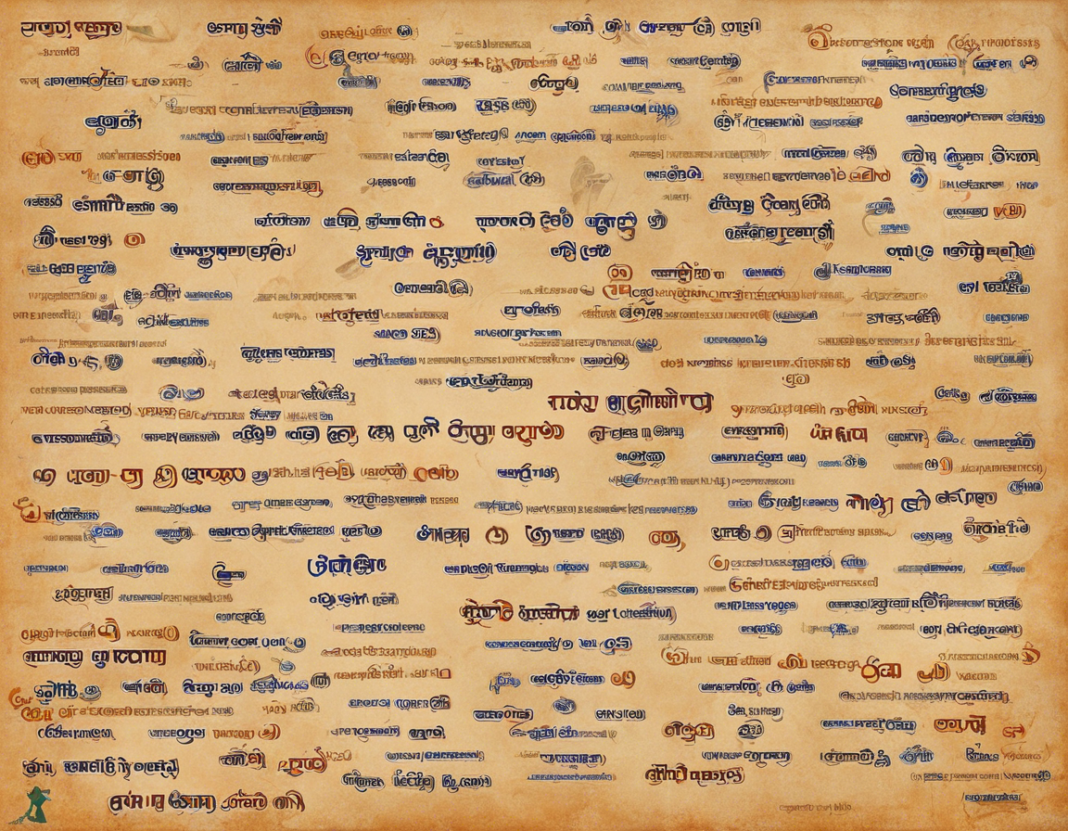In the rich linguistic landscape of India, the intersection of languages often gives rise to intriguing linguistic phenomena. One such fascinating example is the presence of Tamil words in Telugu language. Telugu and Tamil are two prominent Dravidian languages spoken in southern India, each with its own unique history, culture, and literary traditions. Despite their distinctiveness, these languages have interacted with each other over centuries, leading to a sharing of vocabulary and linguistic influences.
Historical Context:
The historical connections between Tamil and Telugu can be traced back to ancient times when the southern regions of India had significant cultural exchanges through trade, religion, and royal patronage. The Chola and Pandya dynasties, which ruled over parts of present-day Tamil Nadu and Andhra Pradesh, played a crucial role in facilitating such interactions. This historical backdrop laid the foundation for the linguistic cross-pollination between Tamil and Telugu.
Linguistic Influence:
The influence of Tamil on Telugu language is most evident in vocabulary, where numerous Tamil words have found their way into Telugu lexicon. These borrowed words often pertain to cultural aspects, everyday objects, food, and social interactions. While the core structure of Telugu remains distinct, the infusion of Tamil vocabulary adds a layer of richness and diversity to the language.
Examples of Tamil Words in Telugu:
-
அம்மா (Amma) – అమ్మ (Amma): Both Tamil and Telugu use a similar term to address mother.
-
உணவு (Unavu) – ఆహారం (Aaharam): While Telugu has its term for food, the word ‘Unavu’ from Tamil is also commonly used.
-
சக்கரை (Chakkara) – చక్కెర (Chakkera): The term for sugar in Tamil, ‘Chakkara’, is adopted in Telugu as well.
-
தோஸை (Dosai) – దోస (Dosa): The popular South Indian dish ‘Dosai’ is known by a similar name in both Tamil and Telugu.
-
நல் (Nal) – నలుకులు (Nalukulu): The word ‘Nal’ from Tamil, meaning good, is used in Telugu to refer to traits or qualities.
Cultural Significance:
The incorporation of Tamil words into Telugu language not only showcases the shared history of the Dravidian linguistic family but also reflects the cultural interconnectedness of the regions where these languages are spoken. It highlights the organic evolution of languages through exchange and assimilation, contributing to the linguistic diversity and vibrancy of South India.
Challenges and Adaptations:
While the presence of Tamil words in Telugu enriches the language, it also presents certain challenges, especially for new learners or speakers unfamiliar with both languages. The pronunciation differences and nuances in meaning can sometimes lead to confusion. However, with exposure and practice, individuals can navigate these linguistic nuances and appreciate the depth of both languages.
Future Prospects:
As languages continue to evolve and adapt to contemporary contexts, the presence of Tamil words in Telugu serves as a reminder of the enduring ties between linguistic communities. The cross-pollination of vocabulary not only preserves linguistic heritage but also fosters a sense of cultural unity and mutual respect among speakers of different languages.
FAQs (Frequently Asked Questions):
-
Q: Are Tamil and Telugu mutually intelligible languages?
A: While Tamil and Telugu belong to the same language family (Dravidian), they are not mutually intelligible due to significant differences in grammar, vocabulary, and pronunciation. -
Q: How did Tamil words enter the Telugu language?
A: Tamil words entered Telugu through centuries of cultural interactions, trade, and historical connections between the regions where these languages are spoken. -
Q: Are there any grammatical similarities between Tamil and Telugu?
A: Both Tamil and Telugu have agglutinative grammar, where suffixes are added to roots to convey meaning. However, the specific grammatical rules differ between the two languages. -
Q: Do Telugu speakers use Tamil words in everyday conversations?
A: Yes, many Telugu speakers use Tamil words, especially in informal conversations or when referring to specific cultural concepts or regional items. -
Q: Are there efforts to preserve the linguistic heritage of Tamil and Telugu languages?
A: Yes, there are ongoing efforts by linguistic organizations, educational institutions, and cultural bodies to preserve and promote the rich heritage of both Tamil and Telugu languages.
In conclusion, the presence of Tamil words in Telugu language is a testament to the enduring linguistic connections and historical ties between South Indian communities. This linguistic exchange not only enriches the vocabulary of Telugu but also underscores the interconnectedness of diverse linguistic traditions in the Indian subcontinent. Embracing the shared heritage and celebrating the linguistic diversity of Tamil and Telugu languages can foster a deeper understanding and appreciation of the cultural tapestry of southern India.
